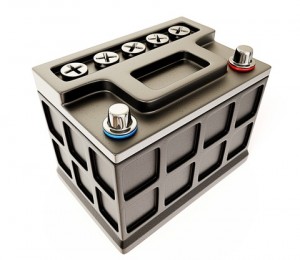Posted on 9/2/2014
.jpg)
Car crashes typically kill between 30,000 and 40,000 people in the United States annually. The most important thing you can do to avoid injury or death in a collision is use your seat belt. Aside from that, there are other important safety devices that could prevent crashes or protect you if there is one. Some are relatively new, and others are older features that have drastically improved over the years. These top 10 car safety features could save your life. 1. Antilock Braking System (ABS) Antilock braking prevents your brakes from locking up and your car from skidding when you slam on the brakes. The system pumps your breaks up to 20 times per second, which allows you to stay in control of your vehicle. 2. Electronic Stability Control (ESC) This feature applies the brakes to individual wheels when skidding is detected. ECS could prevent single vehicle fatal crashes by 50%, according to t ... read more
Posted on 9/2/2014

As we continue to endure an almost endless scorching summer we could probably pay more attention to our poor cars. Forced to drive around outside, sit in parking lots all day and wait in endless traffic snarls the heat can really do a number on them. Auto maintenance should include your car’s battery. Take your car battery. The extreme heat of summer can actually destroy it. Excessive heat and overcharging will shorten your battery’s life. Your battery fluid will actually begin to evaporate and this damages the inside structure of your battery. The voltage regulator is particularly vulnerable and if this is damaged it allows too high a charging rate and this is a battery killer. Summer’s heat damage may not even be apparent until winter and we find ourselves stranded at home or worse at 11pm after a really nice dinner and a movie. So what can you do to keep your battery happy now and avoid ... read more
Posted on 9/2/2014

As you may have found out the hard way, a dead battery can put a real crimp in your day. It’s the number one winter automotive problem, and when your battery dies, it leaves you stopped in your tracks. The cold temperatures will reduce your battery voltage. Cold temperatures combined with the age of your battery can cause problems and keep you home when you need to be mobile. Is this your car battery?What to Do? If you do discover a dead battery when you head out in the morning, take care when attempting to revive it. If it’s been a few days since you’ve driven or it’s excessively cold, your battery can actually freeze, and jumpstarting a frozen battery can be disastrous. If your car cranks even a tiny bit your battery probably isn’t frozen, and it is ok to pr ... read more
Posted on 9/2/2014
.jpg)
“How long should the battery in my car last?” That’s a question we get asked a lot. The average car battery can last between 3-5 years, but the actual life of your battery depends on several factors. The quality of the battery when first purchased. You don’t have to spend a fortune, but don’t be cheap about it. How well you maintain it. Battery maintenance goes a long way toward longer life. Include your battery on your checklist whenever you take your car in for routine check ups. Don’t forget the cables and terminals and keep them clean. The weather. Check the top of your battery to see the temperature specifications. If you live in a cold climate make sure you purchase one intended for your area. Cold weather reduces the cranking power of your battery so an older battery will experience more issues in the winter than a new one. Car batteries can even freeze and explode so if you think your battery is fro ... read more
Posted on 9/2/2014
Screeching tires, crunching metal – it’s an accident! If you’ve ever been in a car accident in Kansas City, even a minor one, you know how upsetting it can be. It’s hard to think straight and know what to do. Let’s review what you should do in case of an accident: When an accident occurs, you should always stop. Leaving the scene of an accident in Kansas City and in Overland Park is considered a crime – even if it’s not your fault. And hit and run penalties are fairly severe, possibly resulting in steep fines, loss of your MO/KS driver’s license or even jail time. Your jurisdiction may require that you try to help someone who is injured by calling for help or performing first aid if you are able. Warn other Overland Park and Lenexa motorists by putting out flares, using your flashers or lifting your hood. Call Kansas City emergency services as soon as possible. Tell the operator if medical or fire help is needed. Always file a Kansas City police report. It’s tempti ... read more